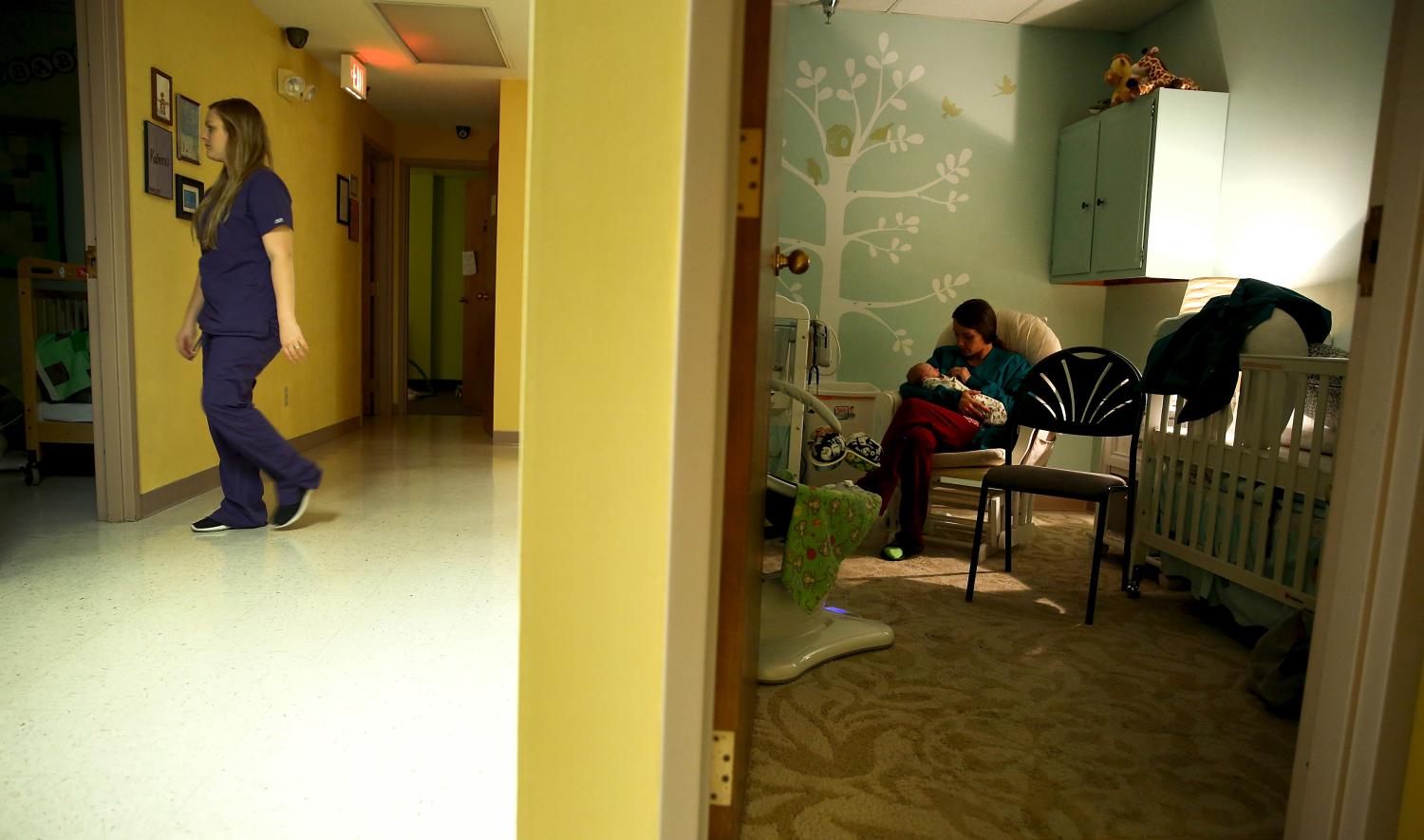This paper comes from the paper series “The opioid crisis in America: Domestic and international dimensions.”
Executive summary
The increasing prevalence of opioid use in the United States has resulted in higher rates of opioid use during pregnancy, and higher rates of a transient pediatric withdrawal condition called neonatal abstinence syndrome (NAS). Fears of NAS have anchored national discourse on the opioid epidemic’s impact on children and have driven punitive responses in many jurisdictions. Currently, 24 states have policies that consider opioid use in pregnancy a form of child abuse, and three states have pursued criminal prosecution of women with opioid use disorder (OUD) in pregnancy.
These policy approaches are premised on placing the needs of the newborn against those of the parent: in fact, it is impossible to uncouple the immediate and long-term health of a child from that of the mother. OUD frequently predates pregnancy, and is often exacerbated by structural vulnerabilities such as poverty and lack of access to health care—factors that also undermine child health outcomes. Parents with untreated OUD are more likely to overdose, be incarcerated, or be separated from their children, but access to effective treatment is limited across the country. Methadone and buprenorphine are highly effective medications that reduce the risk of opioid-related harms, but their use is restricted by stigma and tight regulations. Finally, even though parents with OUD may need resources and support to empower effective parenting long after childbirth, child welfare strategies for infants born to women with NAS tend to be focused on relatively short-term planning.
An effective policy approach to addressing the needs of women and children impacted by the opioid crisis needs to confront three intersecting policy challenges: the inconsistent response to the national overdose epidemic, the politicized landscape of women’s reproductive health, and public mechanisms designed to protect children from maltreatment. In this paper, we propose that comprehensive policy approaches addressing these intersecting challenges be guided by the following principles:
1. Follow evidence, not ideology.
Scientific evidence describing interventions that promote child and maternal health should guide local, national, and international policy development. There is a clear need to reduce barriers to medication treatment for OUD, to endeavor to keep mothers and their infants together, and to empower parents to address infant needs after birth.
2. Expand attention to women, children, and families beyond NAS.
Effective strategies to promote child and family well-being need to address the structural inequities that intersect with opioid use, such as poverty and lack of access to health care, and build resilience among youth.
3. Provide comprehensive women’s health services throughout the reproductive lifespan.
Policy approaches should ensure comprehensive women’s health care—both during pregnancy and throughout women’s lives. Specifically, effective approaches to treating OUD in pregnancy and within families must integrate a range of medical and social services, including contraception, mental health, and primary medical care, alongside opioid use treatment strategies.
4. Adopt supportive interventions, not punitive ones.
Evidence suggests that supportive strategies that facilitate treatment and engagement with medical and social service systems are associated with better outcomes than punitive approaches that use coercion to discourage substance use.
5. Provide support to preserve family unity.
Programs designed to develop and support good parenting abilities are likely to be more beneficial for the child than breaking up families. Policymakers should consider implementing approaches such as home visits and care coordination to support family needs.









